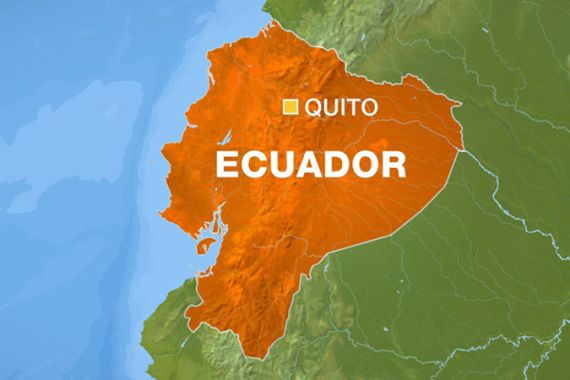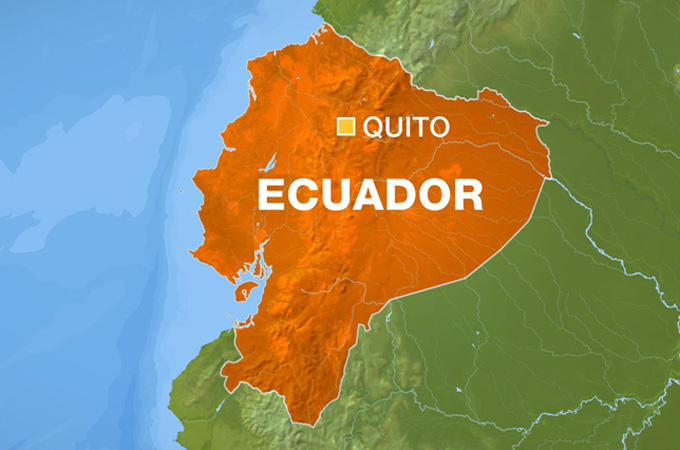Country profile: Ecuador
Ecuador has a history of political instability despite being a major exporter of oil and other goods.

 |
The republic of Ecuador, literally translated as the republic of the “equator”, is named after its geographic position on the line that divides the northern and southern hemispheres.
It gained independence in 1830, after having been part of the Spanish colonial empire and the republic of Gran Colombia.
Ecuador has a population of more than 14 million people and shares its northern border with Colombia and Peru in the east and south.
It has an ethnically diverse population with about 65 per cent of people the mixed descendants of Spanish colonists and indigenous people.
The post-independence history of the country has been characterised by political instability with a rapid succession of rulers through the growth of the banking sector and expansion of the cocoa industry in the 19th century.
The collapse of the cocoa market and the Great Depression deepened political instability before Ecuador enjoyed relatively stable civilian rule between 1948-1960.
Social unrest
However, social unrest returned in the 1960s, culminating in the rise of an anti-communist government between 1963-1966.
The discovery of oil in the sixties transformed the economy, prompting the government to incur large debts in a bid to finance a state-led industrialisation.
A new constitution was voted into being in 1978 and paved the way for a return to democracy in 1979 after seven years of military rule.
Although Ecuador marked 25 years of civilian governance in 2004, the period was marred by a return to political instability, including protests in the capital, Quito, that contributed to the mid-term ouster of Ecuador’s last three democratically elected presidents.
In 2008, voters approved a new constitution; Ecuador’s twentieth since gaining independence and general elections were held in April 2009.
These brought a second four-year term for Rafael Correa, the current president of Ecuador, who exercises his power from the presidential Palacio de Carondelet in Quito.
He has promised to distribute the country’s wealth through political and social reform, and greater state participation in the economy.
Major exporter
Ecuador’s is a major exporter of oil, bananas – of which it is the world’s largest exporter – coffee and cocoa, but indigenous groups argue that the economy is dominated by the Spanish-descended elite and only they have benefited from the country’s natural resources.
The country’s dependence on oil revenues, exports and remittances make Ecuador vulnerable to external shocks.
Deteriorating economic performance in 1997-1998 culminated in a severe economic and financial crisis in 1999. The crisis was precipitated by the El Nino weather phenomenon in 1997, a sharp drop in global oil prices, and international emerging market instability.
These factors resulted in a weakening of the banking sector and defaulting on external loans. The resultant hyper-inflation forced the government to replace the national currency with the US dollar in 2000, in a bid to stabilise the economy.
In 2008, Ecuador defaulted on billions of dollars of foreign debt that he declared illegal, a move that was hailed by many Ecuadorians but criticised by investors.
Ecuador is a medium income country with an estimated 35.1 per cent of its 13.6 million people living below the poverty line.